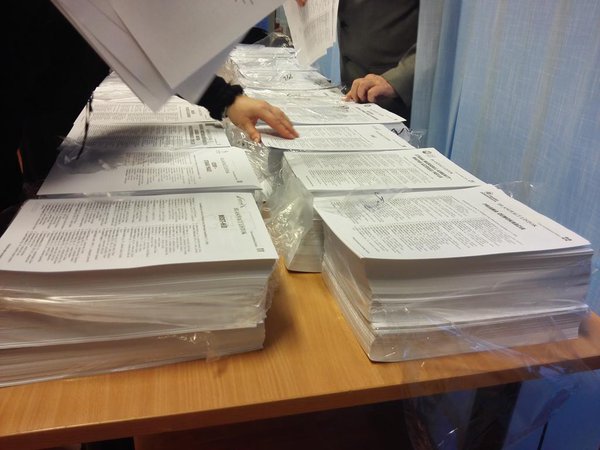

Immediately after the parliamentary elections were finished, due to imbalance and overwritten data in summary protocols, ISFED applied to 44 DECs requesting revision of voting results at 162 PECs (recount of results). Majority of the complaints were rejected as baseless or left without consideration on the grounds that they were filed by unauthorized individuals.
Among 162 PECs where results were challenged, DECs recounted election materials only at 10 PECS, including:
Kutaisi DEC left 7 complaints of ISFED for recount of results without consideration. However, the following day, on its own initiative it recounted results of PEC N23.59.102. Before starting to consider complaints, Mtatsminda DEC, where ISFED had filed complaints for recount of results at 6 electoral precincts, reviewed results of PEC N01.01.18 on its own initiative and subsequently rejected ISFED’s complaint as baseless. For the remaining electoral precincts, recount requests were rejected.
Notably, due to the limited timeframe prescribed by law and limited resources, ISFED was not able to file complaints for all problematic summary protocols. Therefore, it urged the electoral administration a number of times to exercise its legal powers and irrespective of complaints, recount on its own initiative results at all precincts were problems were found and question marks existed.
Notably, the following trend was identified in the complaints process: to correct errors/inaccuracies in protocols summarizing voting results (disbalance, overwritten data, missing data), DECs prepared correction protocols. On the most part, this process took place after the Election Day.
Majority of complaints about recount of results was rejected as baseless.
In this case, to justify the rejection DECs provided PEC members’ statements and correction protocols, which cannot serve as the basis of credibility of summary protocols with significant imbalance. Majority of correction protocols were based on verbal or written statements of PEC members. Therefore, the process of correction of summary protocols was entirely subjective. To verify the numbers to be included in summary protocols, DECs did not open sealed packages and count the actual data. DECs avoided as much as possible recount of precinct results.
In light of this, the harmful practice identified in several previous elections continues to be a problem. In particular, irregularities in summary protocols irrespective of their seriousness were corrected at DECs based on protocols of correction and statements of PEC members. Such superficial approach toward significant irregularities in summary protocols does not engender trust toward election results and the election administration.
Notably, some DECs partially satisfied complaints: in particular, some claims for recount of results were entirely rejected. However, a disciplinary sanction (mostly a reproof) was imposed on PEC members, mostly PEC chairperson and secretaries. Despite requests to impose administrative sanctions on PEC members that had grossly violated the law, some DECs resorted to lighter forms of sanction.
DECs avoided recount of results at problematic precincts, citing formal reasons
Some DECs cited formal reasons to avoid taking actions in response to complaints concerning serious irregularities and left them without consideration. For example, a DEC argued that a complaint was not enclosed with a proper power of attorney. In case of ISFED, all observers had power of attorneys together with accreditation. However, DECs refused to consider complaints without requesting the said document. Requesting additional power of attorney from accredited observers is a separate issue, which makes the purpose of accreditation ambiguous. Such action clearly made it seem that the real reason for refusing to consider complaints was lack of willingness to address, identify and solve the irregularities.
In addition, in case of Kutaisi and Adigeni, complaints were handled in absence of the interested party and without giving the interested party an opportunity to present their opinions. In one cases, DEC provided wrong time to the observer for when the complaint would be considered. In reality, the commission made the decision before that. As a result, the complainant had to face the fact without being able to protect her interests.
Reaction of DECs to complaints filed for recounting of election precinct results should be evaluated as clearly negative as well as ineffective, which has resulted in transfer of the process to court and delays. Clearly, due to very limited timeframe and resources, it will be impossible to appeal every rejected complaint in court. Therefore, the election administration has failed to adequately respond to the existing challenge and instead of solving it, the administration has delayed the process even more, which aggravates the political crisis in the country and does not help solve the crisis. The existing situation has clearly illustrated the problems that exist in the election administration, as well as unacceptability and ineffectiveness of the established attitudes and practice of reacting to election irregularities.
Subscribe to our
newsletter
Sign up for our monthly newsletter
and receive the latest EPDE news
Subscribe to our
newsletter
Sign up for our monthly newsletter and receive the latest EPDE news